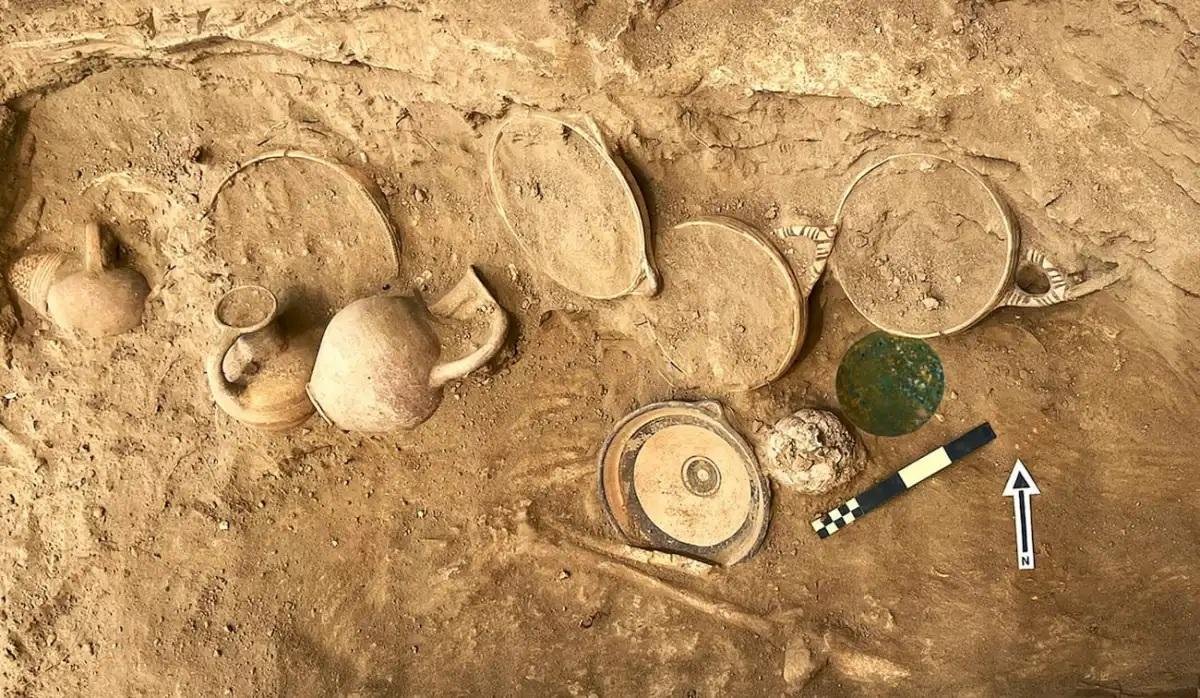Archaeologists have unearthed a remarkable Aegean bronze mirror, during excavations at the ancient site of Hala Sultan Tekke, located on the southeastern coast of Cyprus.
 Detail of the objects found in the tomb, with the bronze mirror on the right of the image. Credit: Peter M. Fischer, Oxford Journal of Archaeology (2024)
Detail of the objects found in the tomb, with the bronze mirror on the right of the image. Credit: Peter M. Fischer, Oxford Journal of Archaeology (2024)
The city of Hala Sultan Tekke thrived between 1630 and 1150 BCE, strategically positioned alongside the Mediterranean Sea, facilitating extensive trade and commerce. Recent excavations within the city’s extramural necropolis have revealed a series of intact tombs.
One key finding emerged from Chamber Tomb XX, dated to around 1300 BCE. The tomb contained the remains of four individuals out of a total of 17, alongside a remarkable collection of 264 complete objects, reflecting the diverse cultural influences present in the region during that era.
These objects, ranging from everyday items to funerary offerings, originated from Mycenaean, Minoan, Canaanite, Egyptian, and Levantine cultures, showcasing the extensive trade networks and connections of the time.
Among the treasures discovered within this tomb is a rare Aegean bronze mirror. Measuring between 11.2 and 11.4 centimeters in diameter and weighing 156 grams, the mirror exhibits typical features of mirrors produced in the Aegean during that period, particularly in Crete. The absence of preserved rivets or handles suggests they were likely crafted from perishable materials such as wood, ivory, or bone.
The mirror’s presence within the funerary context suggests its significance as a personal item of symbolic value, potentially reflecting the aesthetic preferences and social status of its owner. While Aegean-type mirrors were relatively scarce on the island, their presence in Tomb XX highlights the elite’s engagement with distant cultures and the exchange dynamics that characterized the Late Bronze Age.
This discovery aligns with previous findings, such as the presence of a similar mirror in Enkomi Tomb 66, emphasizing the significance of Hala Sultan Tekke as a hub of cultural exchange during this period.
More information: Feldbacher, R., Alvarez, L. E., Miyauchi, Y., Lorentz, K., and Fischer, P. M. (2024) An Aegean Mirror From Hala Sultan Tekke, Cyprus. Oxford Journal of Archaeology, 43: 153–172. doi.org/10.1111/ojoa.12292





